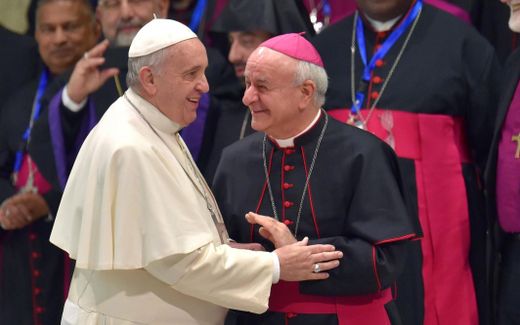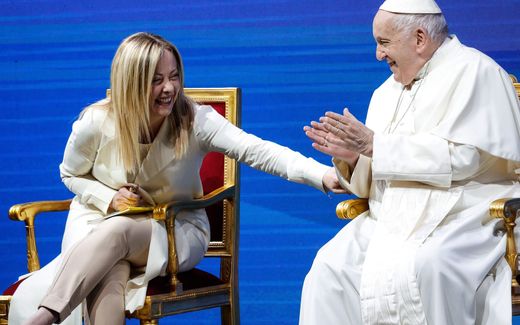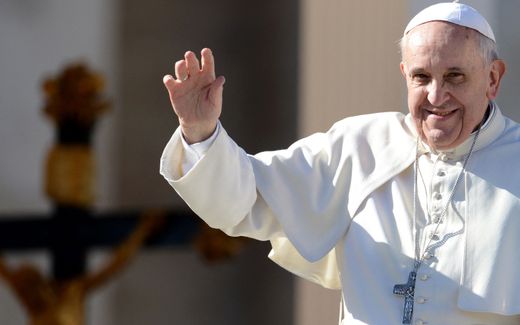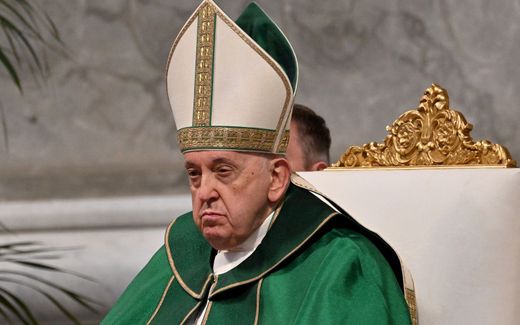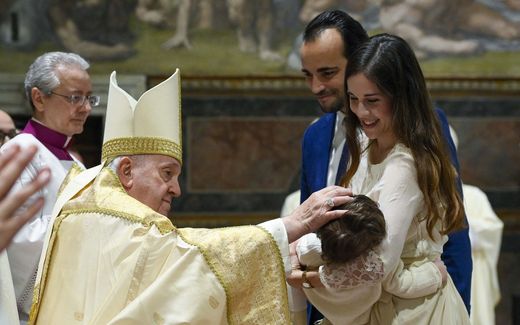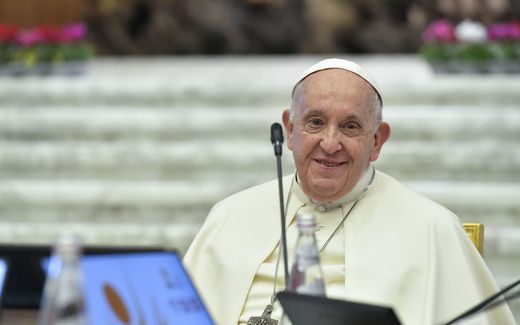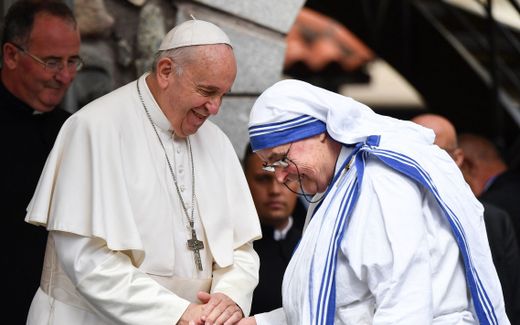What does it mean if the Pope accepts salvation outside Christianity?
01-10-2024
Southern Europe
Espen Ottosen, Dagen.no
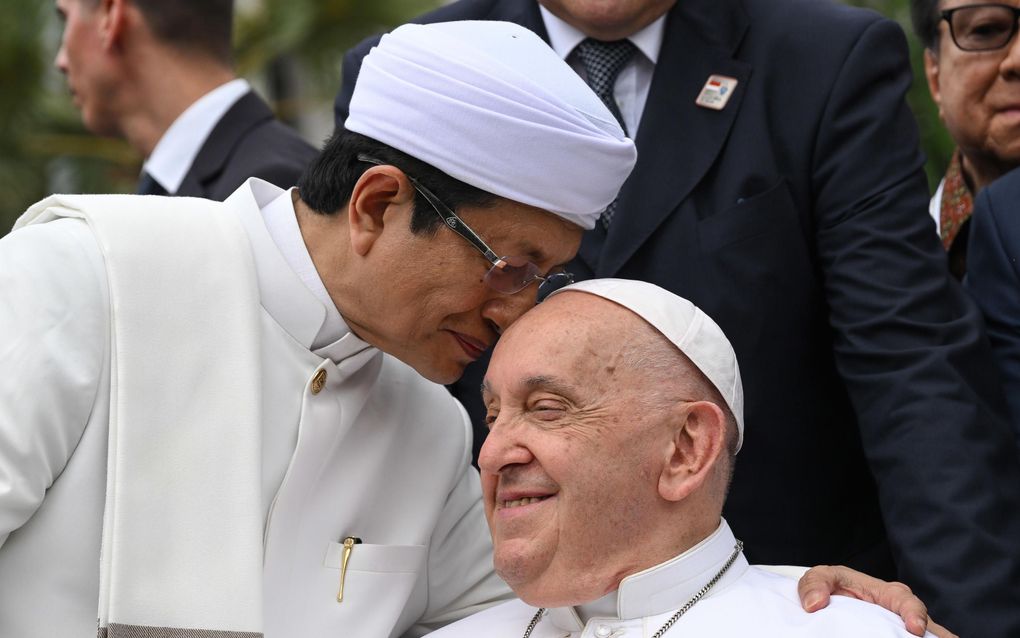
Pope Francis (R) poses with Grand Imam of Istiqlal Mosque Nasaruddin Umar (L) for a family photo at the end of the interreligious meeting at the Istiqlal Mosque in Jakarta, Indonesia. Photo EPA, Alessandro di Meo
Southern Europe
In recent decades, several prominent Catholics have stated that even those who do not believe in Jesus can be saved. In this sense, the Pope is in good company when he recently stated that different religions “are different ways to God”.
Stay up to date with Christian news in Europe? Sign up for CNE's newsletter.
The 87-year-old Pope Francis was recently in Singapore. At an interfaith event, he spoke in front of 600 young people. Some of his sentences have subsequently been discussed (and by some sharply criticised) in a number of international media:
“All religions are ways to God. They are like different languages and different dialects to get there. But God is God for everyone. If you start fighting and saying, 'My religion is more important than yours, mine is true, and yours is not true', where will that get us? There is only one God, and each of us has our own language to reach God. Some are Sikhs, Muslims, Hindus, Christians; they are different ways to God.”
Is the Pope saying that all religions lead to salvation? And is such a message contrary to the official teachings of the Church?
Ramblings
“Heresy? The ramblings of an old man? Or does the Pope have a point?”
The recognised Catholic newspaper The Catholic Herald presents these three possible explanations in an article. In an analysis, the journalist writes that the Pope's words should hardly be taken literally and adds that it would have been nice if the Pope had spoken a little more clearly.
But we should remember, the newspaper goes on to say, that the truth of Christianity is linked to Jesus. And “although other religions may point in the right direction, they do not contain the totality of this Truth.”
Others are more exasperated. Former US Archbishop Charles J. Chaput makes the point that the Pope “has a habit, which is a well-known fact, of saying things that confuse his listeners and make them hope he meant something other than what he actually said.”
Chaput goes on to write that the explanation is often –as in this case– that the Pope leaves his script.
Translation
Here in Norway, the nun Anne Bente Hadland, former prioress at Sta. Katarinahjemmet, has also given a critical assessment of the Pope's statements. She points out that the official English translation of the Pope's words has made them quite ambiguous.
A video from the event confirms that the Pope actually said that different religions are “ways of reaching God.” The English text, on the other hand, speaks of ”paths that try to reach God.”
According to Hadland, the difference is “not insignificant, given Christian doctrine's insistence on Jesus Christ as the unique mediator in achieving unity between God and man, and man's universal call to Christian repentance.”
The point is that traditional Catholic thinking sees it as heresy to declare that all religions lead to God – and to salvation.
On the other hand, it is not uncommon to claim that other faiths can actually lead people to Jesus.
On the contrary, such an idea has official church support.
Anonymous
From 1962 to 1965, the Second Vatican Council –also known as the 21st Ecumenical Council– took place in the Vatican. There, a number of comprehensive documents and decrees were adopted.
In one of the most famous, Lumen Gentium (Light of the nations), we find this well-known formulation:
“For those who through no fault of their own are ignorant of the Gospel of Christ and His Church, but who nevertheless seek God with a sincere heart –and under the impulse of grace endeavour to carry out His will as they recognise it by their conscience– may attain to eternal salvation.”
The well-known theologian Karl Rahner (1904-’84), who had a great deal of influence during the Council, spoke of the existence of “anonymous Christians”. These are those who “live under God's grace and achieve salvation outside of explicitly constituted Christianity”.
The claim does not have to be understood to mean that other religions provide salvation, but that the gospel can also be grasped by those who do not see themselves as Christians. Like a devout Buddhist.
Non-Christians
Rahner has been criticised from several quarters. Conservatives are calling for a clearer message about the importance of both the Church and conscious faith. Liberals see it as patronising to claim that a convinced Buddhist or Jew is actually a Christian.
But Rahner has also received support – and was not officially reprimanded by the church leadership like his Swiss colleague Hans Küng. This was probably not primarily because Küng also allowed other religions to lead to God but because of his criticism of the Pope's infallibility.
Recently, Dag Øivind Østereng wrote in the Norwegian newspaper Dagen about another famous Catholic theologian, Hans Urs von Baltazar. He played “an important indirect influence on the Second Vatican Council through his theological writing”.
For Von Baltasar, it was important not to put himself in God's place and declare that there is no such thing as perdition. But he argued that since God wants to save everyone, it must be allowed to hope that everyone is actually saved.
Is this something that today's Pope would also say? It is at least worth mentioning that he (like both Rahner and Von Baltasar) is a Jesuit.
Trends
The Catholic Church is often portrayed as stability itself – where the Church's doctrine is firmly established regardless of changing ideas and theological trends.
Such an understanding is not unreasonable. Not least compared to much of what is happening in the Protestant world, the Catholic Church appears rather unshakeable.
But that is not the whole truth. The Catholic Church has both considerable breadth and strong tensions. This is particularly evident when Pope Francis says something that attracts attention – whether it's about other religions or homosexuality.
Some react negatively and refer to traditional theology and key biblical texts. ”Outside the Church, there is no salvation” has been a central doctrine. Right up until the Second Vatican Council, 'the Church' was perceived as a synonym for the Catholic Church. The consequence was that Protestants could not be saved.
Today, such a conviction is less common. However, knowing Jesus is still central to many people's beliefs. That's why Charles J. Chaput believes that the Pope's statements are problematic:
“To suggest, even slightly loosely, that Catholics walk a more-or-less similar path to God as other religions drains martyrdom of its meaning.”
Conservative
Theologian Ola Tjørhom –who converted to the Catholic Church in 2003 and returned to the Church of Norway in 2018– has argued that the Catholic Church has become more conservative since the Second Vatican Council.
In an article from 2012, he wrote about the “marginalisation of the Second Vatican Council and a growing traditionalist hegemony”. He also referred to “30 years of conservative bishop appointments.”
Pope Francis is often perceived as less tradition-oriented and more concerned with modernising the Church. Many will probably perceive his words about other religions as an expression that he is more liberal than, for example, his predecessor, Pope Benedict XVI.
But it is not at all certain that today's Pope, even if he has become a “media darling”, is distinctly liberal. It is more likely that he should be seen as a modern, Catholic theologian.
It's also possible that his words about other religions were primarily intended to encourage peaceful coexistence between people of different faiths.
This article was translated by CNE.news and published by Dagen.no on 23 September, 2024
Related Articles

